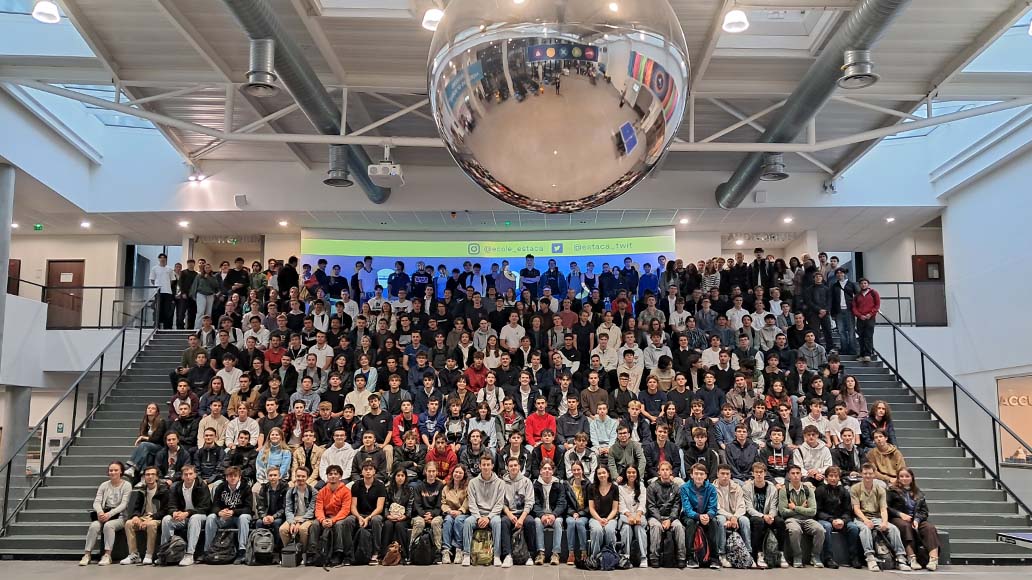On the approach of its centenary, ESTACA is expanding its campuses and courses dedicated to the transport of tomorrow

New options, new courses, campus expansion… ESTACA, the benchmark post-baccalaureate engineering school, confirms its appeal due to unique positioning around sustainable mobility and designing the transport of the future. In line with its strategic plan for 2030, the School is attracting a growing number of young students every year, eager to make a career in this fast-changing sector. With its sights firmly set on the future, the start of the 2024 academic year marks the beginning of a pivotal year for ESTACA, celebrating its centenary in 2025.
A school that appeals to a large number of students with a constantly improving graduate job outcome
ESTACA is one of the top ten most popular post-baccalaureate engineering schools on the French Parcoursup enrolment system. Once again this year, the number of preferences ranked on Parcoursup increased by more than 10% compared to last year.
ESTACA graduates’ employment rate is up again this year according to the results of a survey conducted for the Conférence des Grandes Écoles (CGE). 85% of 2023 graduates had found a job prior to graduating. This rises to 93% within two months of graduation. Nearly half of our current graduates have landed an international job. Most of them work in the aeronautics (44%) and automotive (24%) sectors, but also in other transport sectors (aerospace 12%, rail 7% and shipping 4%).
Evolving and Lively Campuses
In response to the school’s growing appeal among students and the need to recruit engineers in the transport sector, ESTACA is increasing its intake capacity on its campuses. This year it is inaugurating a new building on its Laval campus, doubling the surface area to 12,000 m². 827 students will be welcomed to Laval at the start of the 2024 academic year, including 177 first-year students. This will ultimately grow to a total of 1,100 students.
In September 2025, the School will also open its doors to 1st year students in Bordeaux, in a new building currently under construction which will accommodate 135 additional new students next year.
IDEAL Department Celebrates 1 Year
ESTACA announced it was restructuring its engineering training program in September 2023, launching the IDEAL (Ingénierie Durable et rEsponsAbLe) department to respond to the changing face of mobility and further existing training by strengthening the skills of future engineers in reducing the environmental footprint of transport.
One year after its launch, the results are very positive. Students can now attend an autumn climate program with educational workshops, a series of lectures open to all students and featuring keynote speakers, new course modules (life cycle assessment, smart cities, carbon footprint calculation, low-carbon resource and energy issues, AI and data sciences, etc.), new options in decarbonization, electrification and eco-design. A revamped skills assessment grid has also been made available to emphasize skills related to environmental and societal issues.
In this context, ESTACA is once again continuing its series of lectures entitles “Transition Wednesdays”, focusing on topics arising from IPCC reports, resource issues (in the broadest sense, energy and materials), and the technological breakthroughs and industrial changes needed to decarbonize the transport sector.













